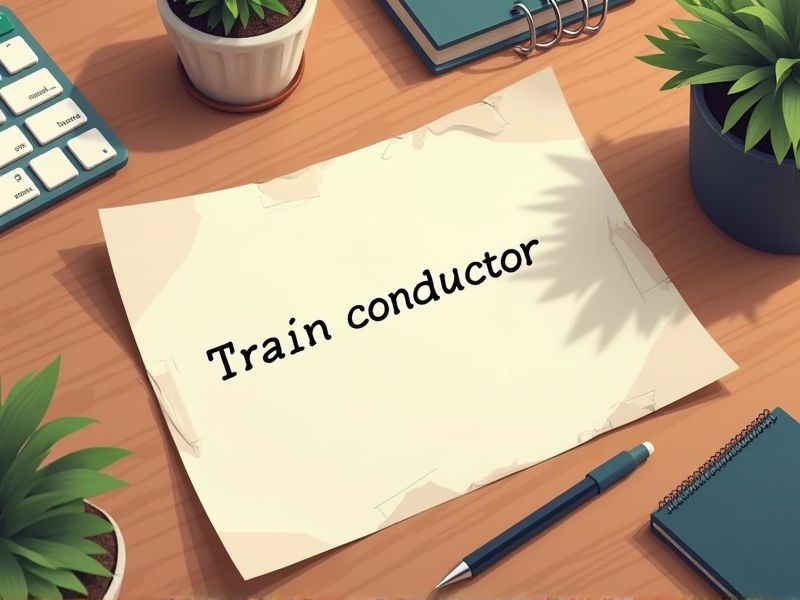
Train conductors hold a critical role in ensuring the safety, efficiency, and punctuality of train operations. Certifications verify that conductors possess the necessary skills and knowledge to manage emergencies, communicate effectively, and adhere to stringent safety regulations. Regulatory bodies require these certifications to maintain a standardized level of competence across the industry. Here are essential certifications you might need as a train conductor.
FRA Conductor Certification
FRA Conductor Certification ensures that conductors possess the necessary knowledge and skills to safely manage train operations, reducing the risk of accidents. The certification establishes a standardized competency level, promoting consistency across the railroad industry. Obtaining the certification is a regulatory requirement, reflecting compliance with federal safety standards mandated by the Federal Railroad Administration. It provides a framework for continuous education and assessment, ensuring conductors stay updated with evolving safety protocols and operational procedures.
Railroad Operations Certification
Railroad Operations Certification is necessary for train conductors to ensure a standardized level of expertise and safety in train operations. This certification educates conductors on essential procedures and regulations, which directly affects the reduction of accidents and operational errors. Knowledge from certification helps in managing and coordinating complex rail networks efficiently. Certification also acts as a benchmark for hiring, ensuring conductors are fully equipped to handle diverse challenges on the track.
Signal and Communication Systems Certification
Understanding signal and communication systems equips a train conductor with the knowledge to effectively manage and interpret various signaling protocols essential for train operations. Mastery of these systems reduces the risk of accidents and enhances safety by ensuring that conductors can respond accurately to signals and communicate efficiently with control centers. Certification in this area implies proficiency and accountability, which builds trust with passengers and enhances safety standards. As train networks become more complex with technological advancements, such certification becomes crucial for integrating new systems effectively.
Safety Management Systems Certification
Safety Management Systems (SMS) Certification is crucial for train conductors because it establishes a structured framework that emphasizes risk assessment and hazard identification, directly reducing the likelihood of accidents. Certification enhances communication and coordination among train personnel, leading to improved operational efficiency. It ensures conductors are trained in standardized safety procedures, reinforcing accountability and compliance with regulatory requirements. Through SMS, organizations foster a safety culture, mitigating potential liabilities and ensuring passenger and crew safety.
Hazardous Materials (HazMat) Certification
Hazardous Materials (HazMat) Certification equips train conductors with essential skills to safely handle and transport dangerous goods, thus reducing the risk of accidents and spills. Proper certification ensures that conductors understand regulatory compliance, which prevents potential legal and financial repercussions. Knowledge from HazMat Training enables conductors to respond effectively to emergencies, minimizing harm to people and the environment. Certification also enhances overall safety standards across the railway network, thereby protecting infrastructure and public health.
Emergency Response Certification
Train conductors often face situations requiring immediate attention, such as passenger emergencies or on-board accidents; emergency response certification equips them with vital skills to handle these scenarios effectively. During emergencies like derailments or medical crises, certified conductors can prevent further harm and manage the situation, potentially saving lives. The certification ensures conductors understand safety protocols and communication procedures essential for coordinating with first responders. Trained conductors enhance overall passenger confidence, contributing to a safer travel environment.
OSHA Safety Certification
OSHA Safety Certification is needed for train conductors because it ensures they understand and adhere to safety protocols crucial for preventing accidents on the tracks. This certification educates conductors on recognizing hazardous conditions, thus reducing the likelihood of workplace injuries. Proper safety training can improve emergency response skills, enhancing passenger and crew safety during incidents. Employers benefit from reduced accident rates and potential liabilities, maintaining operational efficiency and compliance with regulations.
First Aid and CPR Certification
Train conductors often encounter emergencies, ranging from medical issues to accidents, during travels. Obtaining First Aid and CPR certification equips these professionals with vital skills to provide initial care, potentially reducing the severity of injuries. This certification can stabilize conditions until professional medical help arrives, which is crucial in often remote locations railways traverse. Implementing such training can also boost passenger confidence, knowing that conductors are prepared for unexpected health-related incidents.
Crew Resource Management Certification
Crew Resource Management (CRM) Certification equips train conductors with essential communication skills, reducing human errors during critical operations. Improved situational awareness through CRM training helps in anticipating and mitigating potential hazards on the tracks. Standardized decision-making processes fostered by CRM ensure that conductors can effectively collaborate with engineers and other crew members. Enhanced conflict resolution skills resulting from this certification contribute to smoother, safer train operations.
Customer Service Excellence Certification
Train conductors with Customer Service Excellence Certification often improve passenger satisfaction by effectively managing inquiries and complaints. This certification provides conductors with enhanced communication skills, which may lead to increased passenger trust and a smoother travel experience. Proper customer service training can reduce incidents of conflict and delay, indirectly boosting operational efficiency. Certified conductors contribute to positive brand perception, encouraging more people to choose train travel over competing modes of transportation.
Summary
When you hire a train conductor with certifications, you can expect improved safety standards and operational efficiency. Certified conductors are trained to handle emergency situations effectively, reducing the risk of incidents. Their expertise contributes to a smoother and more reliable travel experience for passengers. Costs related to accidents and operational downtime are often reduced, positively impacting your bottom line.
